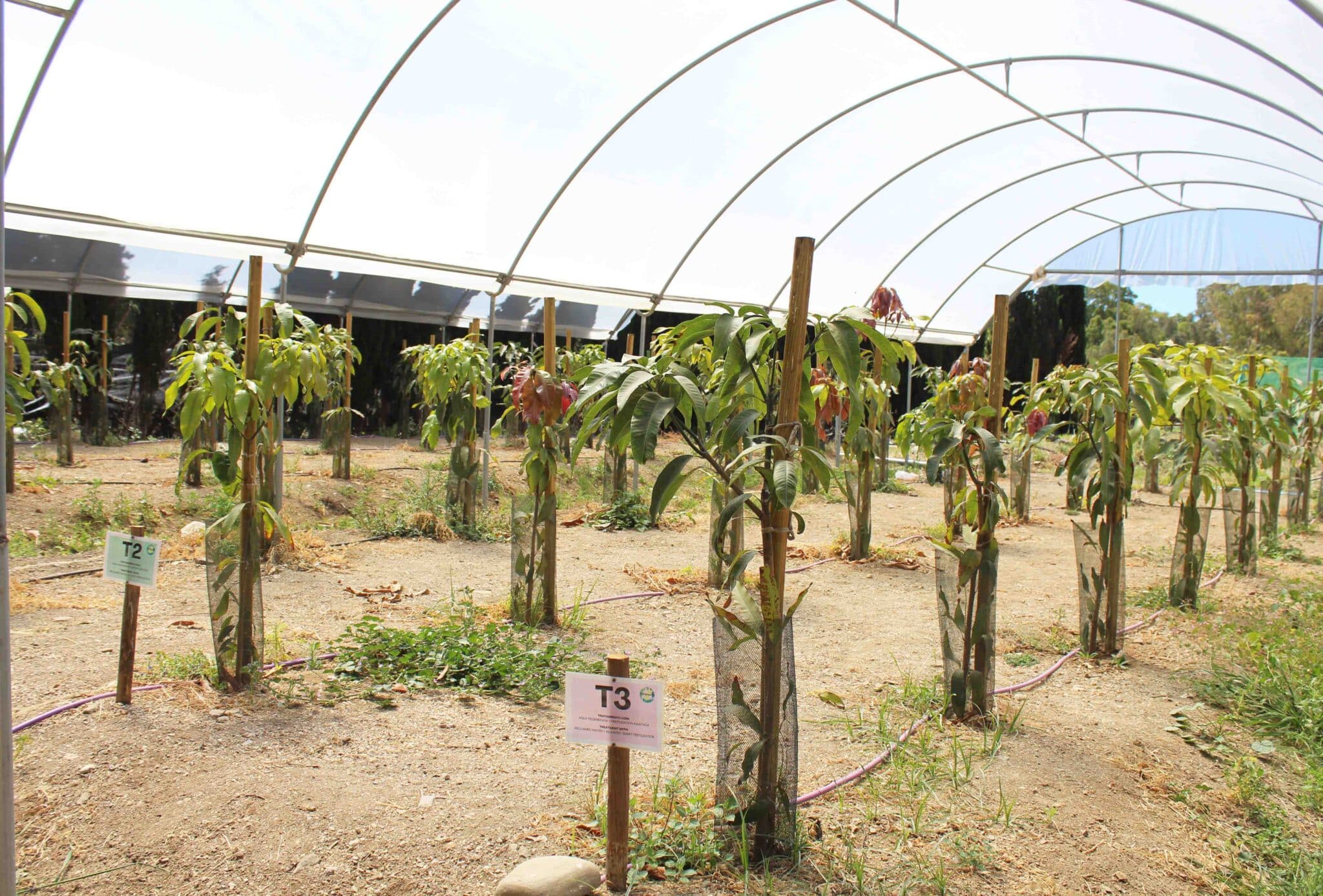The BONEX Living Lab in La Axarquía, located in the municipality of Algarrobo, Spain, demonstrates a practical WEFE Nexus solution through the reuse of reclaimed urban wastewater for the irrigation of avocado and mango crops. The demonstrator integrates a tertiary treatment system—based on disc filtration, ozonation, and chlorination—with a digital nutrient management tool that helps optimize fertilizer use according to the nutrient content of irrigation water. Combining stakeholder engagement with technological innovation, the Living Lab contributes to sustainable water use, nutrient circularity, and resilient agriculture in a water-scarce Mediterranean context.
Descriptive Summary
Background
La Axarquía region faces increasing water scarcity due to prolonged droughts, unsustainable groundwater use, and growing agricultural demand. Traditional water sources are no longer reliable, especially for subtropical crop production such as avocado and mango. Simultaneously, treated wastewater from the urban wastewater treatment plant was underutilized, discharging valuable water and nutrients without recovery. There was a need for integrated solutions that enhance water circularity and resource efficiency in agriculture, while ensuring environmental and human health protection.
Aims and Goals
The main objective of the BONEX Living Lab in La Axarquía is to implement a circular WEFE solution based on reclaimed water reuse. The demonstrator aims to:
- Optimize the use of treated urban wastewater for irrigation and fertilization.
- Implement nutrient management tools for precision agriculture.
- Engage local farmers and stakeholders in co-creating sustainable water reuse models.
- Address water scarcity, reduce nutrient losses, and preserve natural ecosystems.
Actions taken
- Construction of a tertiary treatment system consisting of disc filtration, ozonation, and chlorination, installed and operating since 2022 at the WWTP of Algarrobo (Málaga).
- The system produces approximately 16 m³/day of reclaimed water, adapted to the irrigation needs of the test site
- A nutrient management tool has been developed to calculate optimal fertilizer dosing based on the nutrient load in reclaimed water, supporting farmers in cost reduction and minimizing environmental impact.
- Workshops and demonstration activities have been conducted with farmers and irrigation authorities to support knowledge transfer and stakeholder uptake.

Main Achievement to date
- Successful operation of a cost-effective, modular tertiary treatment system adapted to local infrastructure.
- Compliance of reclaimed water with EU reuse quality standards, enabling its safe use on avocado and mango crops.
- Demonstrated viability of reclaimed water for partial or total substitution of mineral fertilizers, contributing to the reduction of the carbon footprint associated with crop production.
- Pilot use of the nutrient management tool has demonstrated economic savings for farmers and a reduction in diffuse contamination, while enabling site-specific fertilization strategies.
Lessons, replicability and scalability potential
- Reclaimed water can be safely and effectively reused for fertigation of high-value crops like mango and avocado.
- Nutrient management tools are essential to:
- Optimize fertiliser use based on water nutrient content.
- Prevent diffuse pollution.
- Reduce fertilization costs.
- Co-design with stakeholders (farmers, cooperatives, local water authorities) increases acceptance, adoption, and long-term viability.
- High replicability in regions with water scarcity.
- Scalability is strengthened by:
- Compatibility with existing sensor and monitoring systems.
- Potential integration into cooperative-led farming models.







